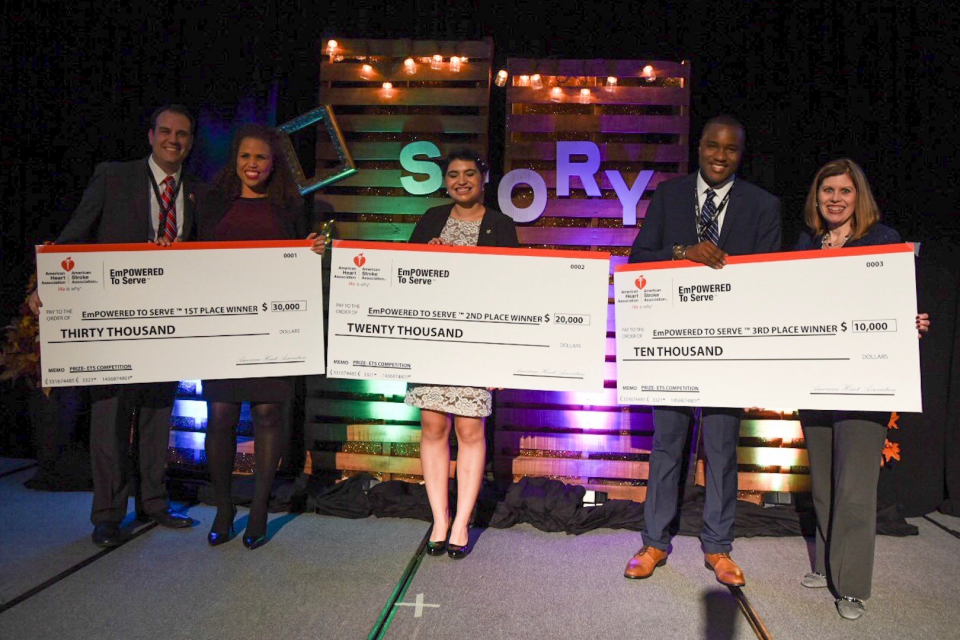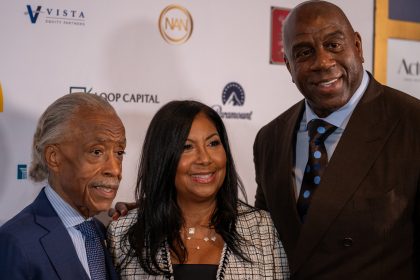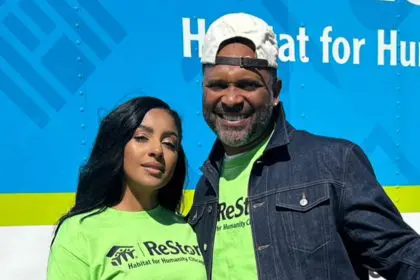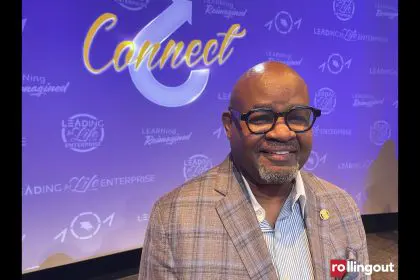
The American Heart/Stroke Association held its inaugural EmPOWERED to Serve Summit in Washington, DC to discuss the barriers and solutions to healthy living and well-being in urban communities. According to the Association, individual behaviors aren’t the only factors that affect health in a positive or negative way; your community plays a huge role in your health, as well. As an addition to the summit, the association held an Urban Business Story-Telling Competition and named three organizations as winners receiving $30K, $20K, and $10K.
“We partner with faith-based organizations to close the health gap and build a culture of health in urban communities that face the most challenging health disparities. We’ve inspired thousands of sedentary men, women and children to get up, get moving and believe that change is possible. We do this through endurance events, community-building and health promotion. This has resulted in profound changes in health behaviors and health outcomes. Being the grand-prize winner is not only a welcomed financial support, but building on our strategic partnership with AHA also enables us to significantly increase the number of lives, families and communities we can impact together. The American Heart Association office in Chicago was our first funder when we first began this work, so it’s definitely a full-circle moment to expand this partnership nationally,” says Nyasha Nyamapfene of Gospel Run (Chicago).
Rolling out was able to chat with the ambassador and volunteer of EmPOWERED to Serve, Mark Moore, to get more information about this healthy-living summit.
What is the EmPOWERED to Serve movement?
EmPOWERED to Serve is the American Heart Association/American Stroke Association’s multicultural movement developed to build a sustainable culture of health in diverse communities across America and encourage more people to get involved in their communities. The movement is designed to leverage the American Heart Association’s 2020 impact goal, improving health outcomes and reducing the gap in health disparities among minorities in multicultural communities. The overarching goals are to increase healthy living behaviors, enhance the chain of survival and cultivate community transformation. The American Heart Association, through its EmPOWERED to Serve movement, is working in communities and joining with partners to address key factors that impact health: economic stability, education, societal influences, neighborhoods and healthcare. The EmPOWERED to Serve movement seeks community leaders to become ambassadors to work with the American Heart Association to improve the health of communities and make a positive impact within their sphere of influence.
Why did you decide to have this inaugural summit?
The EmPOWERED to Serve Summit is an example of a platform to have these important conversations. We were very pleased with our inaugural summit and hope to continue the momentum that was established in Washington, D.C. in future years.
What leading experts were a part of this event?
First we had my foundation, The Mark and Brenda Moore Family Foundation, funders of the EmPOWERED to Serve movement and the summit. We serve as American Heart Association and Mid-Atlantic Affiliate EmPOWERED to Serve volunteers, ambassadors and we co-hosted the competition. Our Keynote Speaker was Robert Johnson, the managing partner of Solomon Group, LLC and chief diversity and inclusion officer of Quintarios, Prieto, Wood & Boyer. We welcomed Moderators/Presenters Keith B. Churchwell, M.D., FACC, FAHA, FACP, senior vice president, operations and executive director, Heart and Vascular Center and Transplantation Center, Yale-New Haven Health; chair, American Heart Association Health Equity and Social Determinants of Health Task Force, and Calvin Butler, CEO, Baltimore Gas & Electric as our moderators and presenters. Lastly, our Competition Judging Panel Lawrence Griffith, founder and CEO, Digital Factory, Inc., and Vanessa Mason, co-founder and managing director, P2Health Ventures and Ryan Mundy, chief strategist, Techlete Ventures; CEO, 12AM Holdings.
What topics were discussed?
We covered a variety of topics over the two-day period, but our overarching focus was on three points: community transformation and the root causes that impact social determinants of health, why and how your zip code may increase your risk of stroke, high blood pressure and other types of heart disease, and engaging unconventional partners to drive creative solutions for collaborative health impact.
What are some ways health can be improved in urban communities?
Get involved! The American Heart Association encourages people to connect with like-minded community, business and organizational leaders, and by using resources from the American Heart Association/American Stroke Association, they can share best practices, develop strategies and ultimately help drive a sustainable culture of health that begins within their local community and reaches far beyond.
How did you come up with the writing competition? How did businesses enter? How did you select the winners?
We assembled a judging panel that reviewed several factors when selecting the three winners. They took into consideration the following attributes, including, but not limited to: how well did the business solution/concept address social determinants of health? Did the concept have the potential to grow? Can it be easily introduced to other communities? Did the competitor clearly define what success looks like and how funds will be managed? Did the competitor exude passion and enthusiasm about their concept and its potential impact? We selected three winners: First Place receiving $30K, Nyasha Nyamapfene of Gospel Run (Chicago) who partners with the faith community to create a culture of health via organized walks and runs, Second Place receiving $20K, Maria Rose Belding of MEANS Database (Philadelphia) who uses technology to move excess food to communities in need, and Third Place receiving $10K, Cecil Wilson of Goffers Got It (Chicago), which is an on-demand delivery service that connects people to services and access to products and income opportunities.














